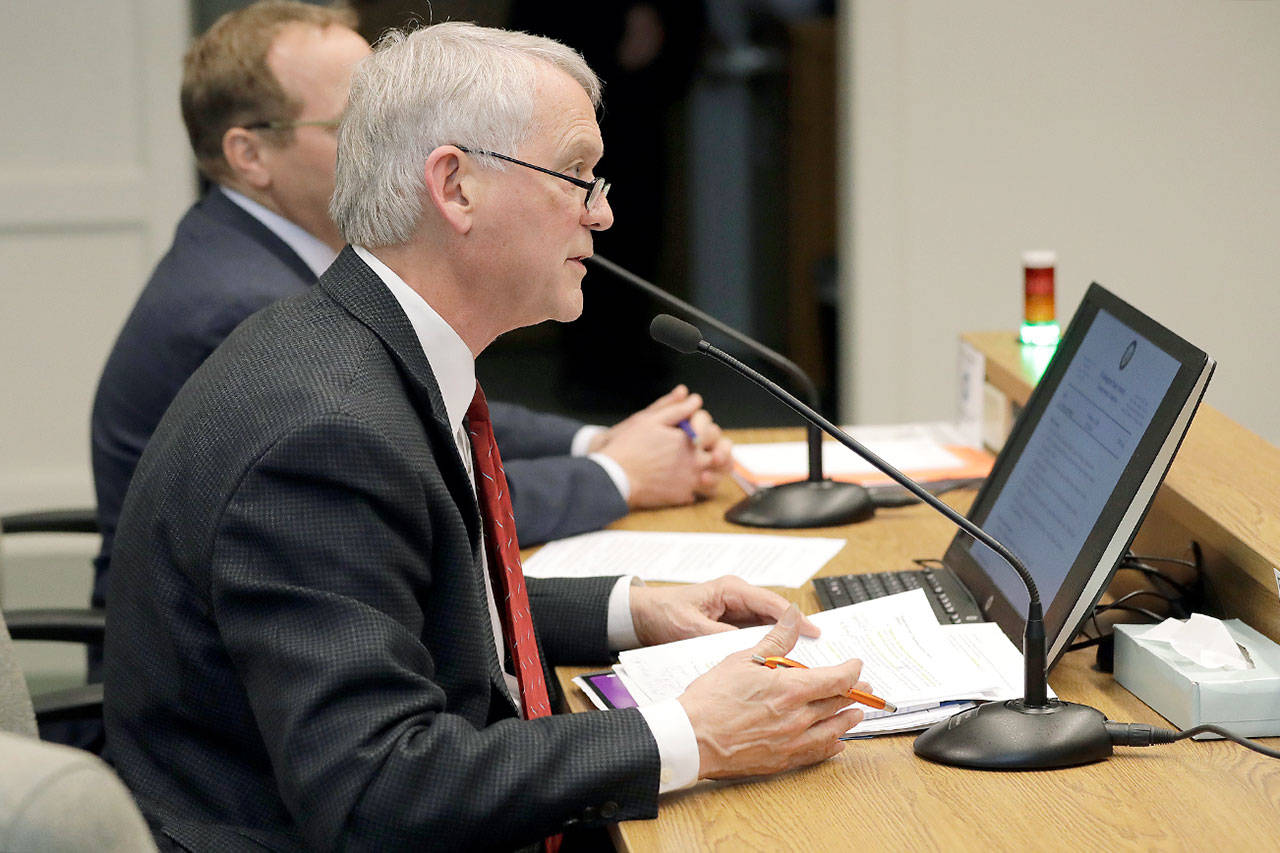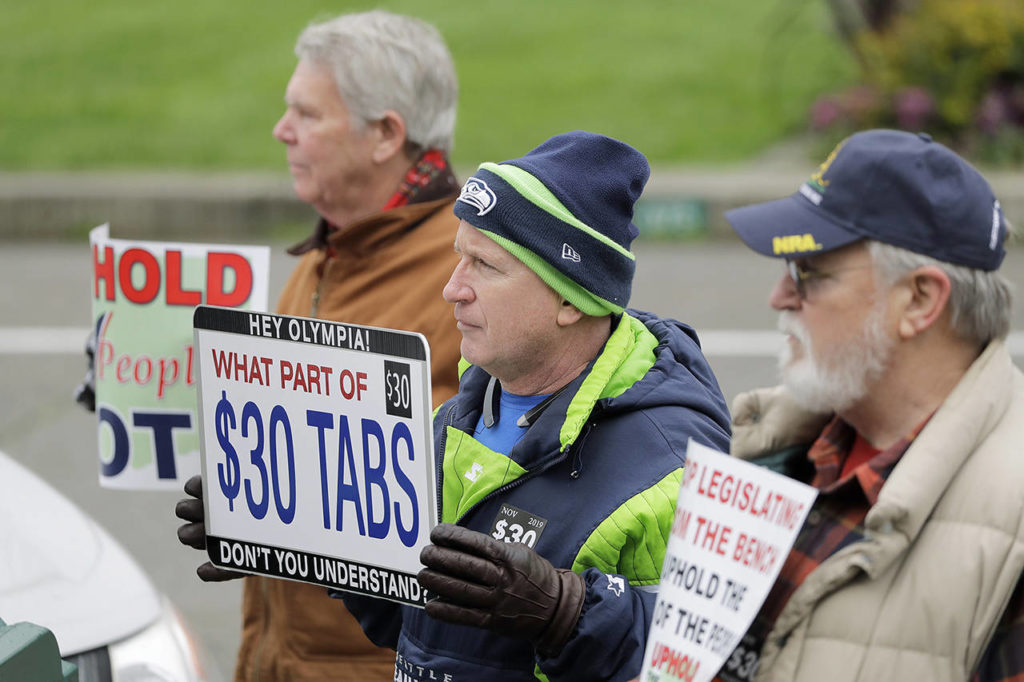OLYMPIA — Another public grumbling session on those pricey Sound Transit car tabs took place Tuesday.
This one drew a smaller audience and fewer gripers than in past years.
But it had its memorable moments.
Like Tim Eyman, the human headache and wannabe slayer of Sound Transit, dropping lyrics of Engelbert Humperdinck’s “Please Release Me” into his testimony.
Or Republican Sen. Steve O’Ban giving a nod to international events by dubbing his bill divorcing Pierce County from the regional transit authority as “Sound Trexit.”
Otherwise the hearing in the Senate Transportation Committee concluded much like its predecessors with no sign Sound Transit will readjust its motor vehicle excise tax absent a legislative directive, court order, or both.
The problem isn’t complicated to understand. It’s politically complicated to solve.
Sound Transit has one demand: For each dollar it loses in car tab collections, it must receive a dollar to make up the difference. It has to be dollar-for-dollar. Not 90 cents on the dollar. Not even 99 cents.
“We are open to find new ways of addressing the car tab issue. We get it,” Paul Roberts, an Everett councilman and vice chairman of the Sound Transit Board of Directors, told lawmakers. “But we recognize that it is a question of offsets. If you take the funding elements out of the areas that I represent that are at the end of the system, they are put at the greatest risk for not getting the services that we’ve been waiting for, for far too long.”
O’Ban asked Roberts what car tab relief Sound Transit would support.
There isn’t one specifically. Roberts and CEO Peter Rogoff iterated any viable solution must not endanger existing bond contracts nor impede delivery of projects in the Sound Transit 3 expansion. Voters approved the expansion, and a near quadrupling of the tax rate, in 2016.
Enter Sen. Marko Liias, D-Lynnwood. He’s a huge Sound Transit fan who is trying this session to discover an isthmus of compromise. It won’t be easy. Attempts in 2017, 2018 and 2019 all failed.
Liias drafted a bill requiring vehicle taxes be calculated using a depreciation schedule that closely tracks vehicle values in the Kelley Blue Book. Right now, the agency uses a depreciation schedule crafted in the 1990s which overvalues newer vehicles and is a contributing factor to higher car tab costs.
Senate Bill 6606, which has already undergone one rewrite, offers some means for Sound Transit to offset the $1 billion hit it estimates it will take from switching schedules.
At the hearing, Rogoff said it still doesn’t seem to be revenue neutral. Eyman disliked it because it does not eliminate the excise tax as sought in the voter-approved — and presently legally challenged — Initiative 976.
“I feel like I’m stuck between Sound Transit and Tim Eyman trying to find a pathway that is reasonable,” Liias told committee members considering the bill. “We want our light rail. We also want our car taxes to be fair.”
He said “a meeting of the minds” is needed on what Sound Transit means by revenue neutral. Dollar-for-dollar may not be required in his mind.
Washington’s strong economy is generating more revenues for Sound Transit from property, sales and car tab taxes than anticipated. By Liias’ math, the agency hauled in $490 million more in the last three years than projected. It is on pace to collect $2 billion more by 2028, he said.
A Sound Transit spokesman did not dispute the figures as he didn’t know how they were derived. Rather, he offered an October agency report predicting revenues would rise by $1 billion between 2017 and 2041 with costs climbing $1.2 billion in the same period. In other words, the financial picture isn’t as rosy as Liias inferred.
Meanwhile, in the final moments of the meeting, lawmakers heard this entire debate could be mooted by the state Supreme Court any day.
Justices are considering a legal challenge of the 2015 law on which Sound Transit relied when it put its MVET increase in front of voters in 2016. If those provisions are found unconstitutional it will make the Liias bill meaningless, said attorney Joel Ard, who argued the MVET case in front of the high court.
Such a ruling would be a shocker.
But probably not end the grumbling.
Jerry Cornfield: 360-352-8623; jcornfield@heraldnet.com. Twitter: @dospueblos.
Talk to us
> Give us your news tips.
> Send us a letter to the editor.
> More Herald contact information.


























